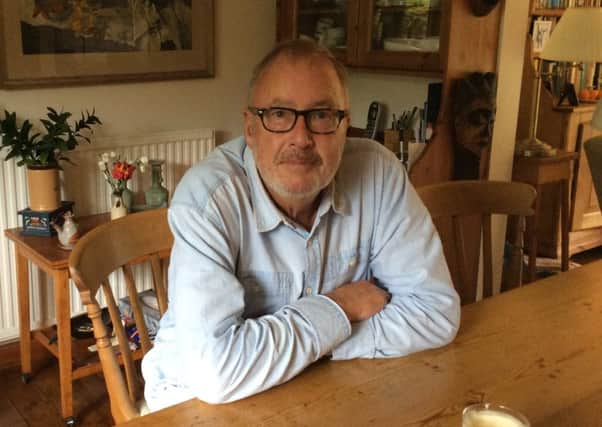Obituary: Michael Robert Haywood, headmaster


Michael Robert Haywood, inspirational teacher and pioneering headmaster, has died at his home in Glenelg, Wester Ross. His death was sudden but not wholly unexpected. Michael was born and brought up in Edinburgh and, though much of his successful career in education was outside of Scotland – in London, Kent and Thailand – he returned to his roots on retirement.
Michael’s father Robert was a salesman, son of a cricket professional. His mother Helen, sister of the Scottish actor Michael O’Halloran, worked in a ladies’ fashion shop. Somehow they managed to send their only child to the Edinburgh Academy. From there, Michael went to Edinburgh University to study history and graduated with honours in 1963. He was determined to become a teacher and decided to do his teacher-training not at Moray House, but at Trinity Hall in Cambridge – a decision not unrelated to the fact that the love of his life, Stella Lyle, was already teaching at a village college in Cambridgeshire. They married soon after.
Advertisement
Hide AdAdvertisement
Hide AdHis first post after qualifying was at the prestigious Dulwich College in south London. There he mixed with staff who would have graced a university but who – like him – were dedicated to the enlightenment of the young.He was resident house tutor, rugby and cricket coach and drama group stage manager. When Stella and he started a family, they looked for a more congenial environment than London for their children. Michael was appointed head of history at Dollar Academy at the age of 29, rapidly also becoming boarding housemaster of Tait House. In 1975, he was promoted to deputy rector at Dollar. During his time there he ran, amongst other things, the sailing club and the debating society. He also immersed himself enthusiastically in the stage management of the school’s theatrical and musical productions.
In 1980 Michael felt it was time to run a school of his own. He was appointed headmaster of Sutton Valence, a small public school for boys in Kent with a history stretching back 400 years. He quickly took the radical step of opening the school to girls, at a stroke levelling the sexual playing field, improving the school’s financial situation and boosting its academic profile. Stella took the role of senior housemistress, English teacher and head of games. Over his time there, Michael implemented a £3 million development programme of new building and modernisation. He also instituted a strategic plan for overall academic performance and subject development.
After 14 years in Kent, Michael stepped aside to try something new but equally challenging. In 1994, he was headhunted to become the first headmaster of a school, yet to be constructed, on Phuket in Thailand – under the banner of Dulwich College but locally financed. He was responsible for establishing the curriculum, hiring the staff and liaising with the local sponsors as the school – a physical copy of Dulwich College – rose from the jungle.It was a stimulating but often frustrating experience, as the Thai approach to management differed somewhat from Western practices. Stella established and ran the English department and was responsible for boarding facilities within the increasingly popular international school.
In 1997, after Michael had a triple heart bypass in Bangkok, the Haywoods returned home to Edinburgh, where Stella enjoyed five years teaching English at her old school, George Watsons. They finally settled in the Ross-shire village of Glenelg, where they had previously had a crofter’s cottage.
This was perfect for one side of Michael’s personality. Dressed in good country clothes, with dogs at his feet and a stick in his hand, he was a familiar and sociable figure, striding along the beach or across the common grazings.
The other side of Michael was fiercely intellectual. He read widely and, frustrating for those who tried to argue with him, had almost complete recall to armour his strong opinions. Orchestral music was his other great love, particularly Mahler, but also choral work and Scottish folk song. He could not read music but he could play several instruments and had a fine singing voice. He was simply great company.
Michael died in his armchair, suddenly but peacefully, only a few days after his 50th wedding anniversary. He is survived by Stella, his children Sarah, Rebecca, Nicholas, Oliver and ten grandchildren. He will be fondly and vividly remembered not just by his family but also by those he taught and those who were proud to call him friend.